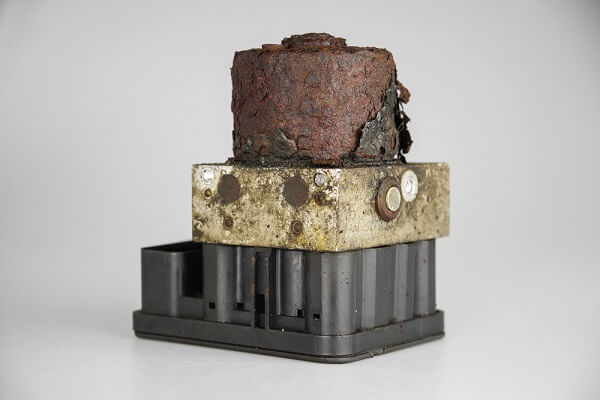Faulty ABS unit? These are the most common causes and complaints
Cars with ABS units have been around since the 70s. Partly thanks to the mandatory requirement for ABS units in new vehicles in 2004 by the European Union, the number of ABS units has risen sharply. In fact, more than 300 million ABS systems have now been produced.
Defects to the ABS system can often be recognised by the warning light or in some cases an ABS unit to suddenly come into operation. But what are the most common problems and complaints of defective units that we see at ACtronics? Read this article to find out.
Causes of a Defective ABS system
Before we look at the complaints, we will first discuss the common causes of a defective ABS. Defects to an ABS unit can be due to various causes. A well-known cause for faulty ABS units that we often see is vibrations, resulting in certain components coming loose. An example of this is when the bonding wires come loose from the circuit board of the ABS ECU.
A second cause is a short circuit in the wiring. The cable harnesses that are mounted in the car move constantly, and due to poor road surfaces, the vibration creates friction between the cables. This friction causes the sleeves to wear around the cables, which means that the cables to the ABS unit could short circuit. Occasionally a cable causes a short circuit due to overheating.

The third cause, which is disastrous for the operation of the ABS unit, is moisture. Exposing ABS units to rain and snow over time can cause the unit to stop working. This is often the case with cars where the ABS is not mounted in a "protected" manner. An example of this is the Renault Espace IV. With this car, the unit is mounted directly behind the front bumper, exposing it to moisture.
Complaints of a Defective ABS
Now that we have covered the common causes of ABS defects, it is now time to look at the complaints that cause them. One of these complaints is the fact that the ABS pump motor fails. This is caused by wear on the moving parts in the pump motor itself, which means that the ABS works inconsistently.
Communication complaints are also a common problem. The ABS can no longer distribute messages via the controller area network (CAN) and can therefore not be read via diagnostics software. This problem occurs with many different ABS units, such as the ATE MK20 and Bosch 5.7.
Finally, we often see errors on pressure and wheel sensors . An ABS unit that often shows this complaint is the ATE MK60. The miniscule connecting wires that are mounted on the unit can break due to temperature changes and vibrations.
Remanufacturing of the ABS System
An illuminated ABS dashboard light can not only be dangerous, but in some cases, this can also cause the car to fail its MOT inspection. This is the case with cars with a first authorisation (DET) after 31-12-2017.
Remanufacturing of the might be a solution to solve the problem. ACtronics has a remanufacturing solution for more than 2500 ABS units. You can use our product finder on our website to find your specific ABS system. Feel free to contact us for more information about our products. Please note, we only work with car companies and garages. If you are a private individual, but still want to use our remanufacturing service, then we would ask that you get you in touch with your local garage and request that they contact us.
More information for private vehicle owners here.

 da
da de
de es
es fr
fr it
it nb
nb nl
nl pt
pt sv
sv fi
fi